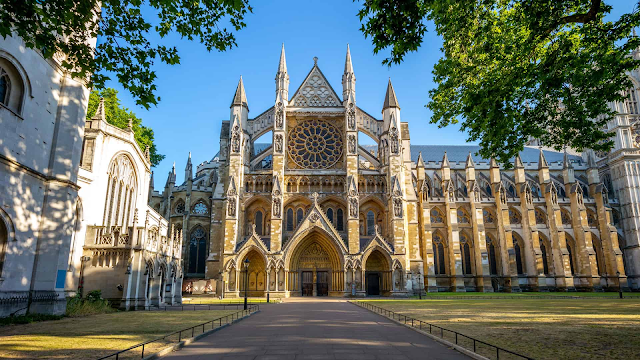Church of England Faces Threat of Split Over Stance on Gay Couples
The Church of England is facing a potential split as an alliance of church leaders threatens to break away over plans to allow standalone services for gay couples.
This proposed change, which is set to be discussed at the upcoming synod next month, has sparked significant controversy and dissent within the institution.
In a letter addressed to the two senior-most bishops of the Church, the dissenting group of leaders expressed their strong opposition to the proposal, stating that it is "clearly contrary" to the Church's doctrine, which affirms that marriage is between a man and a woman.
This alliance, backed by over 2,000 clergy, argues that permitting standalone services for gay couples would represent a significant departure from traditional teachings on marriage.
The Church of England, which does not allow same-sex marriages in its 16,000 churches, made a landmark decision in 2022 to allow priests to bless same-sex couples.
However, these blessings are only permitted as part of regular services open to the public and not as standalone ceremonies, unlike traditional wedding services.
The new proposal suggests a trial period for standalone services specifically for same-sex couples, a move that has been met with resistance from conservative factions within the Church.
"If the further departure from the Church’s doctrine does go ahead, we will have no choice but rapidly to establish what would in effect be a new de facto 'parallel Province' within the Church of England," the alliance warned.
They emphasized that they would not leave the Church or the Anglican Communion but would seek pastoral oversight from bishops who adhere to orthodox teachings on marriage and sexuality.
Adding to the controversy, 11 bishops of the Church of England have publicly stated their inability to support the proposals for standalone services.
In a statement, the bishops acknowledged the emotional and spiritual toll the ongoing debate is taking on many church members, especially the LGBTQI+ community.
They expressed their belief that the proposed changes would not protect the unity of the Church's mission or its partnerships within the wider Church.
The Church of England, which is central to the Anglican Communion comprising 85 million people across 165 countries, has yet to respond to requests for comment on this issue.
Stonewall, a prominent LGBT rights advocacy group that has long criticized the Church for its stance on same-sex marriage, also did not immediately respond.
Papers prepared for the Synod's July 5-9 gathering clarify that the prayers proposed for same-sex blessing services are not intended to simulate marriage.
"The materials contained ... are not a celebration of a couple’s civil same-sex marriage. They are for praying with and for two people who love one another and who wish to give thanks for and mark that love in faith before God," the documents state.
As the Synod approaches, the Church of England stands at a crossroads, grappling with how to balance traditional doctrines with evolving views on marriage and sexuality.
The outcome of these discussions could have profound implications for the future unity and direction of the Church.












Comments
Post a Comment
Good days are on the way...